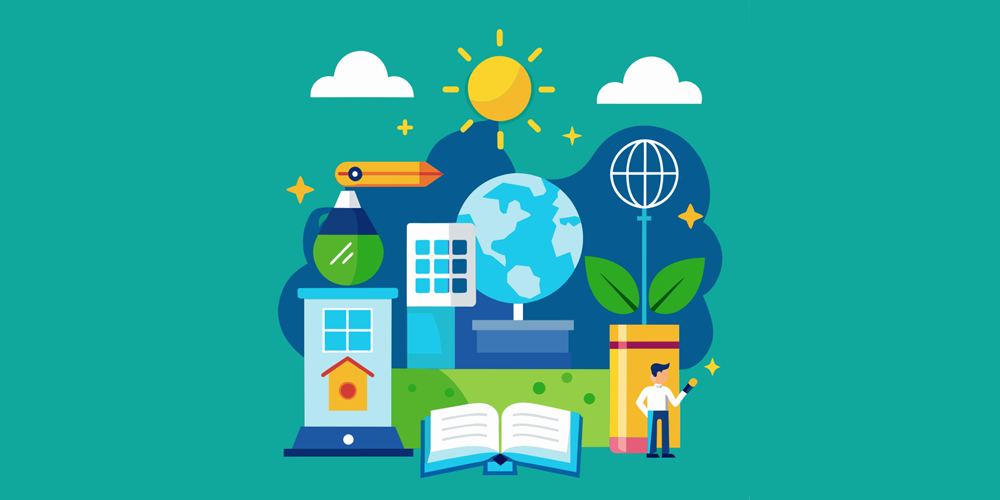
Speaking about the process of education and its constant evolution, the notion of sustainable education is one of the factors that can enhance the education of the generation bearing some responsibilities to the surrounding environment.
The 21K School aims at providing education that not only teaches a student to read and write but also about the world.
Sustainable education is an extended form of education wherein sustainability is incorporated into the syllabi; this makes students have sustainable attitudes toward the planet.
Contents
What is Sustainable Education?
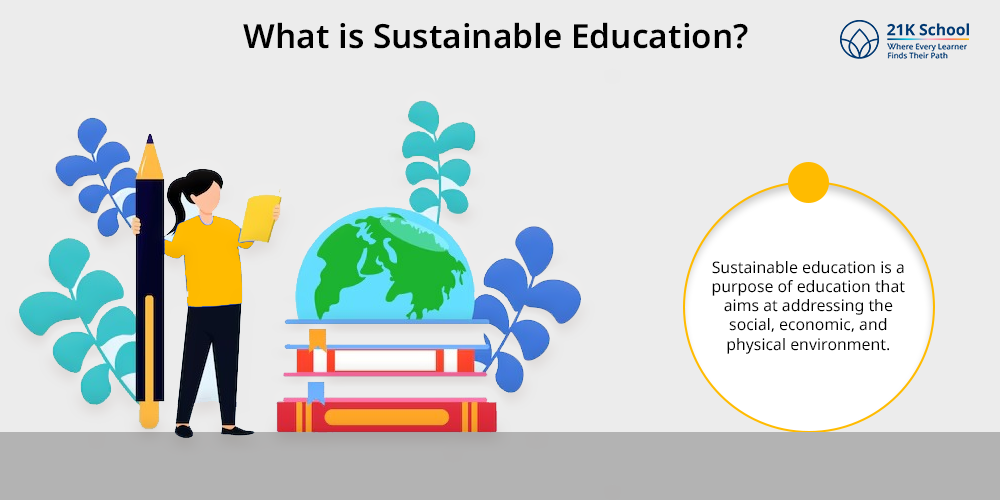
Sustainable education is a purpose of education that aims at addressing the social, economic, and physical environment.
Its intended learning outcomes are to equip the student with the knowledge skills, attitudes, and values required to support a sustainable future.
In this system of learning, sustainability principles are incorporated into education to foster awareness about various issues affecting the world like global warming, exhaustible resources, social inequality, and others.
How is Sustainable Education Implemented?
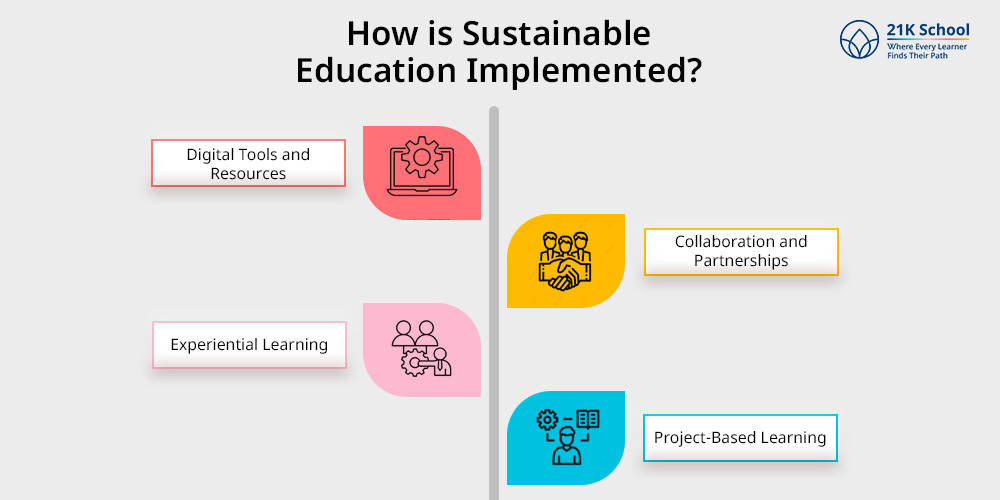
The sustained progress of the integrated approach appears to be sufficient in catering to sustainable education as the idea entails various types of teaching and curricular approaches together with the community.
Here are some key strategies:
Curriculum Integration:
Sustainability concepts and sustainable measures can be incorporated into aspects like science lessons, geographical analysis as well as social studies.For instance, topics on the sources of electricity and light in sciences or effects of human activities on the physical world within the geography curriculum.
- Project-Based Learning: They use the knowledge acquired to solve sustainability issues on projects they do such as starting a garden project or a recycling project at school.
- Experiential Learning: Field trips, nature walks, and project work are all examples of practical learning that keep the students closer to nature and make them aware of the need for sustainable living.
- Collaboration and Partnerships: This is because schools are involved with other institutions, firms, and other groups that are found in society to offer students different perspectives and resources.
- Digital Tools and Resources: Using the internet and digital platforms to share information about sustainability enhances learning by increasing accessibility and broadening students’ exposure to global issues.
Benefits of Sustainable Education
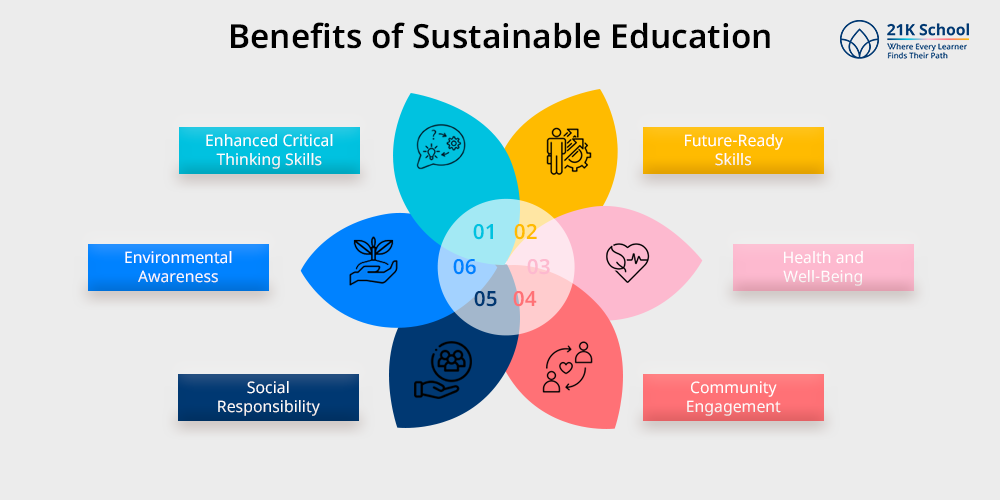
Sustainable education offers numerous benefits for students, educators, and society as a whole:
- Enhanced Critical Thinking Skills: They see multiple aspects of several issues, evaluate them, and think of how they can be solved.
- Environmental Awareness: The fundamental concepts of the environment are learnt by the students as well as the roles that they are capable of playing in addressing them. For the community, it fosters a culture of responsibility and accountability
- Social Responsibility: Education for sustainability encourages students to think about social justice, educational equity and community well-being.
- Future-Ready Skills: It exposes the students to skills that are useful in organizations today such as problem-solving skills, the ability to work in teams, creativity, and flexibility amongst others.
- Health and Well-Being: Sustainable education involves the use of practice in the natural setting, active learning, and exercise leading to the all round health of children.
- Community Engagement: Education institutions, that incorporate the sustainability concept into their curriculum, develop better relations with their stakeholders via projects and collaborations.
Examples of Sustainable Education
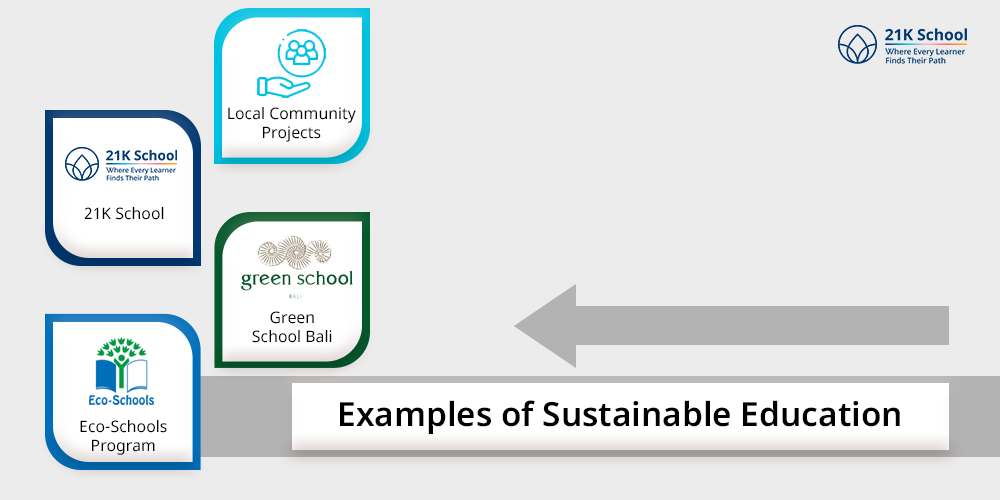
Sustainable education can be seen in action through various innovative programs and initiatives:
1. Eco-Schools Program:
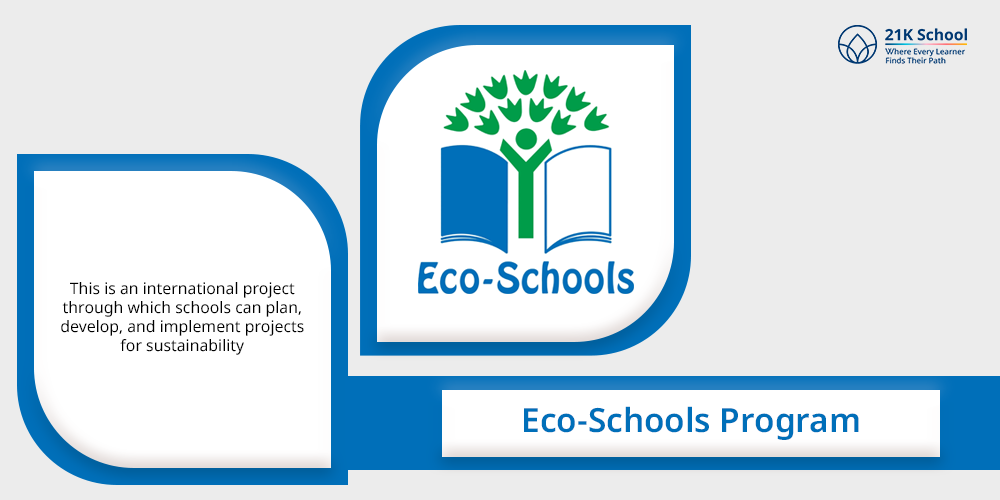
This is an international project through which schools can plan, develop, and implement projects for sustainability such as energy-conserving projects, waste reduction, and many others, as well as enhancing the species-diversity rate.
2. Green School Bali:
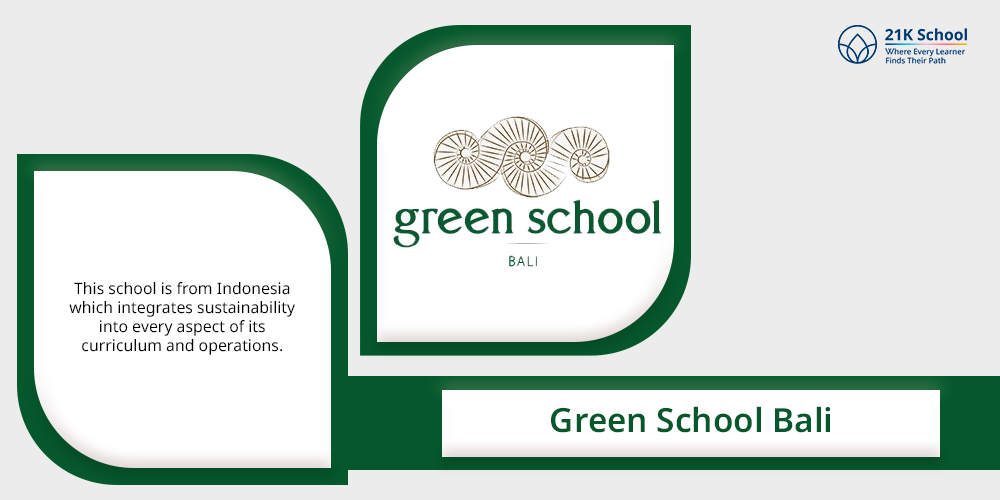
This school is from Indonesia which integrates sustainability into every aspect of its curriculum and operations using renewable energy sources and teaching students about sustainable agriculture and design.
3. 21K School:
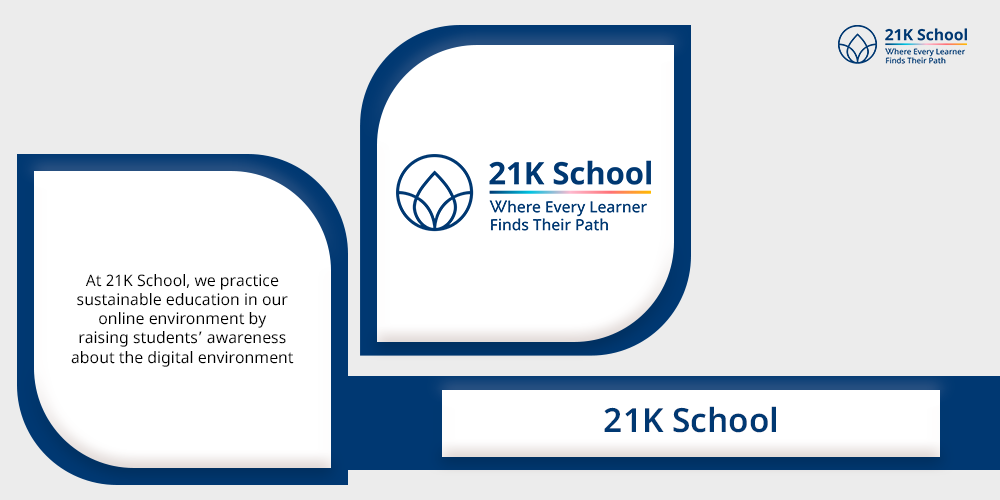
At 21K School, we practice sustainable education in our online environment by raising students’ awareness about the digital environment, offering virtual learning journeys, and engaging students with interactive and educational materials on sustainable development goals.
4. Local Community Projects:
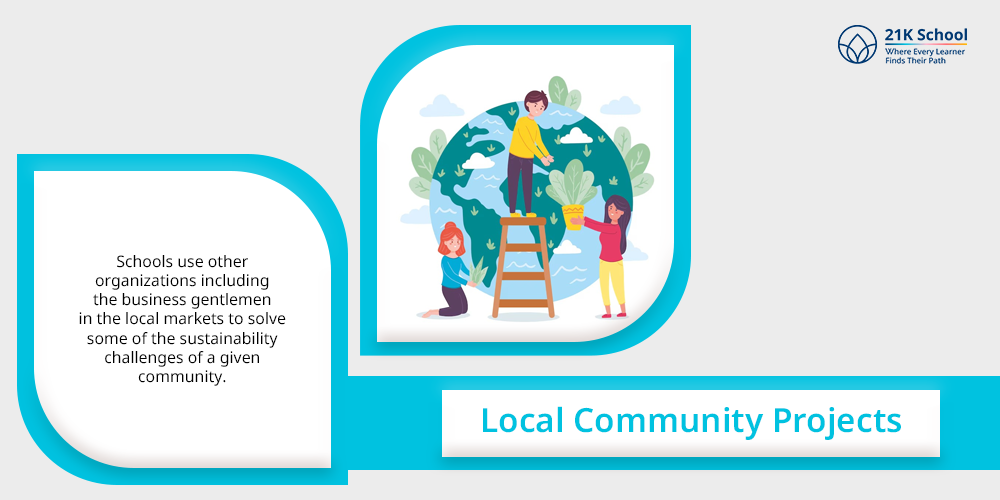
Schools use other organizations including the business gentlemen in the local markets to solve some of the sustainability challenges of a given community such as water scarcity or starting on the onset of urban gardening.
More on Sustainable Education
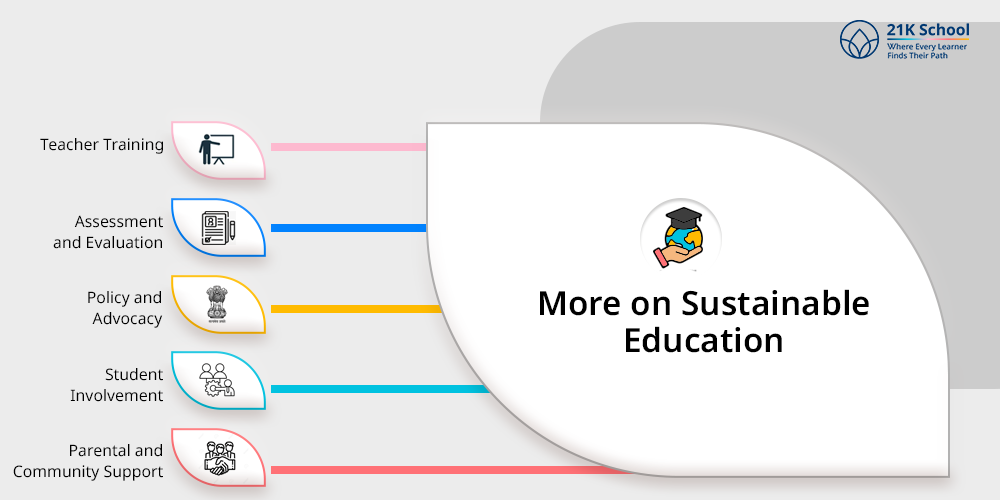
In order to practice sustainability in education, Management has to be intentional, continuous, and constantly updating changes. Here are some additional aspects to consider:
1. Teacher Training:
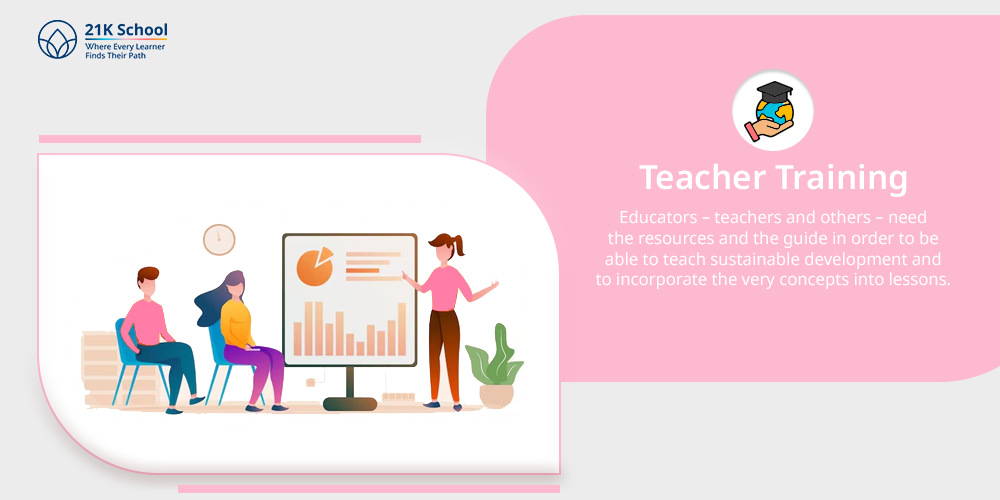
Educators – teachers and others – need the resources and the guide in order to be able to teach sustainable development and to incorporate the very concepts into lessons.
2. Assessment and Evaluation:
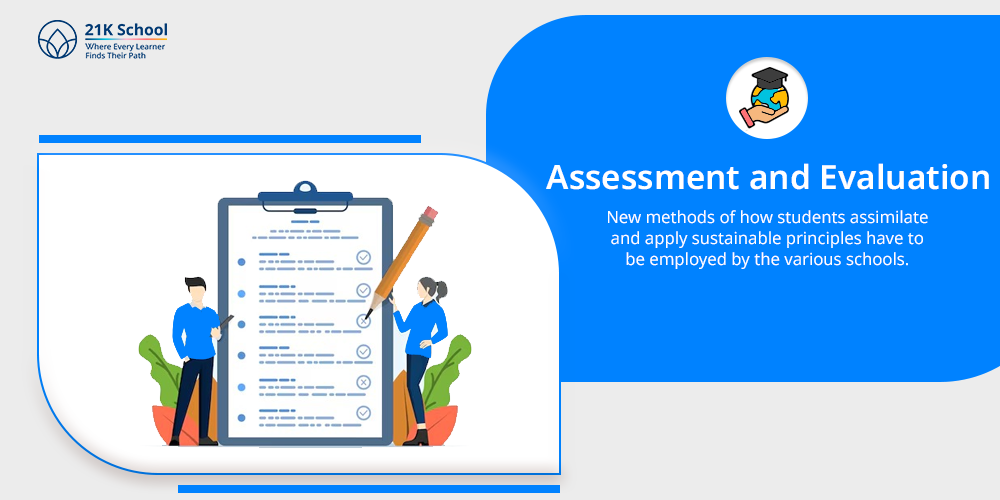
New methods of how students assimilate and apply sustainable principles have to be employed by the various schools.
3. Policy and Advocacy:
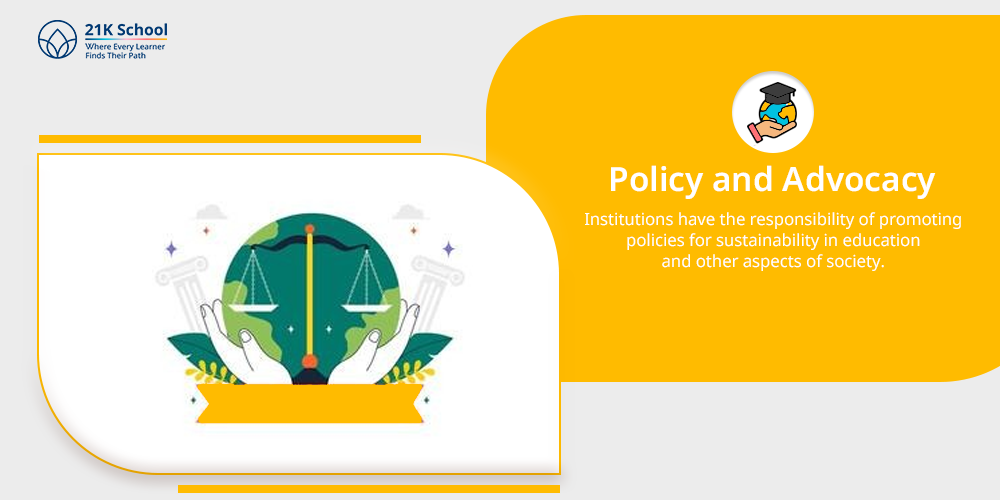
Institutions have the responsibility of promoting policies for sustainability in education and other aspects of society.
4. Student Involvement:
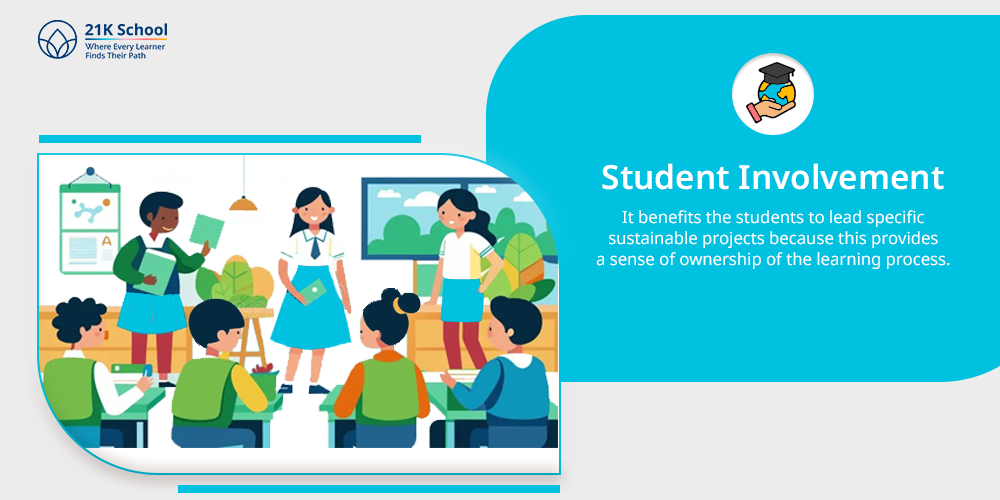
It benefits the students to lead specific sustainable projects because this provides a sense of ownership of the learning process.
5. Parental and Community Support:
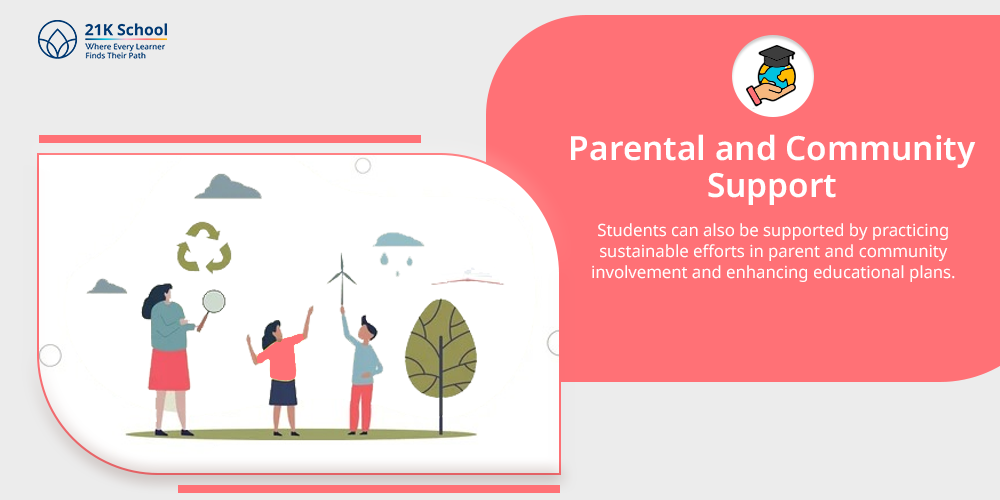
Students can also be supported by practicing sustainable efforts in parent and community involvement and enhancing educational plans.
Conclusion
Sustainable education is one of the keys to fostering the development of students expected to meet problems and challenges experienced in the twenty-first century.
Hence, now more than ever, schools such as 21K School are not only teaching the learners academically but also as environmental and social beings.
Sustainable education will therefore be the concept that provides the framework and shapes other definitions and formulations of the processes toward the development of education in the future.
In combination with new approaches to practice, teaching, and studying genuine partnership with communities, and continuous improvement, we can guarantee that we will prepare our students for the formation of the leaders of a progressive and fair society.
